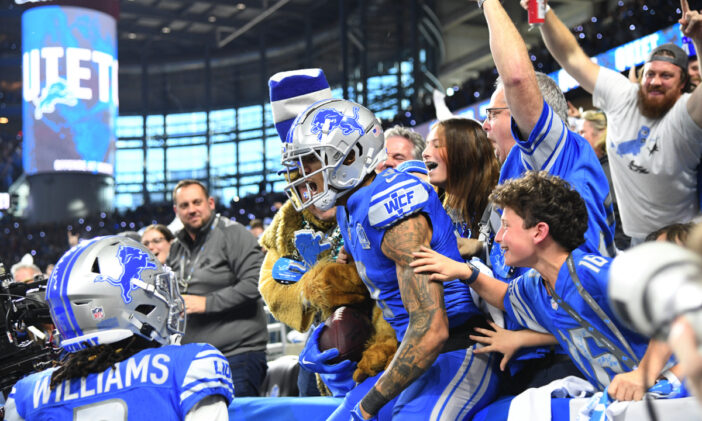The state of Michigan is expected to begin online gambling — sports and casino/poker — later this year or in very early 2021. With the opportunity for casino firms and their technology partners comes risk for players and the state in the form of problem gambling.
In an effort to assist people who can’t control their gambling activity, the Michigan Gaming Control Board is requiring the upcoming online gambling platforms to allow players to self-exclude from betting. This feature is standard for the industry as online gambling proliferates across the country.
Michigan will be just the sixth state in the country to have the trifecta of online sports betting, casino, and poker. The Wolverine State will be the second-most populous state with those forms of real-money online gambling, trailing only Pennsylvania.
According to a Pennsylvania annual report released this week, 231 people had self-excluded from online gambling, whether due to sports, casino/poker or all of the above, as of June 30. Pennsylvania launched online casino gambling in mid-July of 2019, so the 231 self-excluded online gamblers come from almost a full year of online casino gambling being in the mix. Online sports wagering kicked off in May 2019.
Can Michigan expect to see similar participation in online gambling self-exclusion?
Deeper dive into market numbers
Michigan is expected to rival the online gambling markets seen in Pennsylvania and New Jersey.
According to state figures, Pennsylvania’s online/mobile sports betting handle in August, the most recent month from which data is available, was $321,554,131, and the internet sportsbooks retained $15,438,273 of that amount in the form of winnings from gamblers.
Online slot gamblers bet $1,060,557,374 in August, losing $39,630,603 to the iCasinos. Online table games saw $812,483,414 in wagers, with gamblers losing $13,582,723. Online poker players paid $2,729,199 in rake and fees during the month of August.
Altogether, online gamblers in Pennsylvania spent $71,380,798 in August alone.
New Jersey is the clear leader in the U.S. in terms of online gambling revenue. Online casino/poker players spent $87,772,968 in August, with online/mobile sports gambling generating millions more. New Jersey kicked off online casino gambling in 2013, but online/mobile sports wagering didn’t debut until 2018. In the 2019 New Jersey Casino Control Commission annual report, no data was provided on online gambling self-exclusion. It’s unclear if the 2020 report will contain that information.
In Indiana, just 12 people signed up for the mobile sports gambling self-exclusion list in roughly the first nine months after the first online/mobile sportsbook launched. The Hoosier State, where online gamblers spent less than $10 million in August, didn’t legalize online casino gambling along with sports betting.
Overall self-exclusion, PA vs. MI
Just because they are similar markets doesn’t necessarily mean that online gamblers in Michigan will make the same use of self-exclusion as those in Pennsylvania.
Overall, about 16,000 people have self-excluded from some form gambling in the Keystone State. That figure doesn’t include the lottery, which has online gambling.
Like the Pennsylvania Lottery, the Michigan Lottery also has betting over the web.
In Michigan, 4,771 gamblers had self-excluded from the Detroit casinos as of Jan. 1, 2020, according to the state’s annual gambling report. The program doesn’t apply to the two dozen tribal casinos sprinkled around the state, properties that have their own self-exclusion practices.
One key difference between the self-exclusion programs in Pennsylvania and Michigan is that the latter state only permits lifelong self-exclusionary bans. Pennsylvania provides the options of one-year or five-year bans, in addition to lifetime exclusion. That helps explain why Michigan’s participation is less than a third of that in Pennsylvania. Casino gambling in Detroit is about a decade older than the activity is in Pennsylvania. Michigan started allowing gamblers to self-exclude in 2001, so its self-exclusion list should be larger if Pennsylvania is a good benchmark.
Michigan changed this policy in the Internet Gaming Act and the Sports Gaming Act, both of which were passed in December 2019.
In both laws, state-sanctioned online gambling platforms must allow “both temporary and permanent self exclusion” and the ability for players to establish their own periodic deposit and wagering limits and maximum playing times.
Michigan’s legalization of online gambling led to the creation of a new “responsible gaming database.” A person can self-exclude for one or five years from online play, just like in Pennsylvania. The minimum amount of time an online gambler in Michigan can restrict themselves from playing is 72 hours, per the proposed online gambling regulations. The 231-person figure in Pennsylvania only includes people self-excluding for at minimum a full year, so there’s no data on short so-called “cooling off” periods.
The Michigan Gaming Control Board will regulate online gambling offered by the tribal casinos, which means that those properties must adhere to the same self-exclusion rules that the Detroit casinos and their respective technology partners are subjected to. That’s crucial for those suffering from problem gambling because for the first time tribal-run gambling will be accessible statewide.
Though gambling self-exclusion is far less common in Michigan than it is in Pennsylvania, we can expect similar figures in the online gambling realm. According to the National Council on Problem Gambling, as much as 4% of the adult population engages in some form of problem gambling, so the Pennsylvania list should be expected to grow over time. Michigan will also start off with relatively low participation, but it will — and should — increase incrementally as the online betting market matures.
BetMGM Casino T&Cs – Visit BetMGM.com for Terms and Conditions. 21+ years of age or older to wager. MI, NJ, PA or WV only. Excludes Michigan Disassociated Persons. All promotions are subject to qualification and eligibility requirements. Rewards issued as non-withdrawable site credit, unless otherwise provided in the applicable Terms. Please Gamble Responsibly. Gambling Problem? 1-800-270-7117 for confidential help (MI), 1-800-GAMBLER (NJ, PA & WV).





